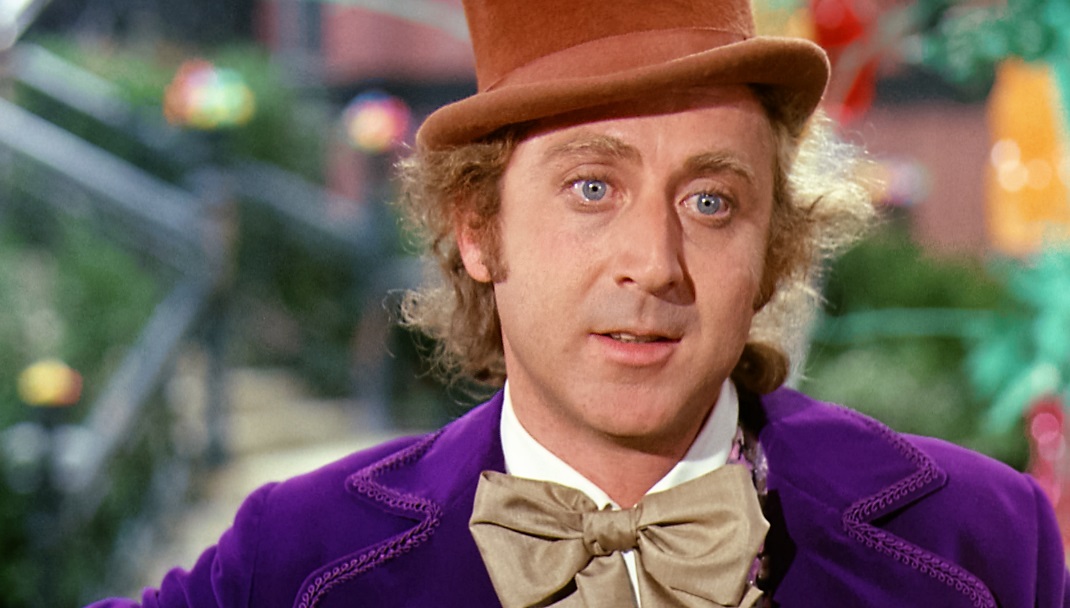As we all mourn the passing of the legendary Gene Wilder, I find myself recalling some of his most memorable roles. One of the first reactions society has when we lose a celebrity or movie star is to remember everything they’ve done and left behind, paying posthumous homage to their legacy. That’s how I found myself watching the original Willy Wonka and the Chocolate Factory and Wilder’s unforgettable performance for what seems like the hundredth time. Movies and stories we first consume as children often change in meaning and interpretation between our first viewing and adulthood, and that couldn’t be truer in this specific case.
As a child, I was captivated by flavored wallpaper, chocolate bars and everlasting gobstoppers, but as an adult working in compliance and ethics, I saw the film more as a tale of morality, values and doing the right thing.
Over the course of the movie, I had one question on my mind: Would Willy Wonka be a good compliance officer?
We all remember the basic premise of the film: an aging, weary, reclusive Wonka is looking for an heir to his candy empire and hides five golden tickets in his signature chocolate Wonka Bar around the world to determine who may be qualified for the job. The five children who ultimately find the golden tickets are given a tour of the factory and unprecedented transparency into one of the most secretive companies, but between the time they find their golden ticket and show up for the tour, each is approached by the mischievous Mr. Slugworth, who makes them an offer.
SLUGWORTH: “I congratulate you, little boy. Well done. You found the fifth Golden Ticket. May I introduce myself. Arthur Slugworth, President of Slugworth Chocolates, Incorporated. Now listen carefully because I’m going to make you very rich indeed. Mr. Wonka is at this moment working on a fantastic invention: the Everlasting Gobstopper. If he succeeds, he’ll ruin me. So all I want you to do is to get hold of just one Everlasting Gobstopper and bring it to me so that I can find the secret formula. Your reward will be ten thousand of these. (He flips through a stack of money.) Think it over, will you. A new house for your family, and good food and comfort for the rest of their lives. And don’t forget the name: Everlasting Gobstopper.”
Now, consider the story from the perspective of a modern, global corporation responsible for the mass production of chocolate and other candy products. Wonka is our Chief Compliance Officer and the Oompa Loompas make up the rest of his compliance and ethics team, consistently reinforcing the idea that greed is bad and against the Wonka code of conduct with short, educational musical numbers. The competition is desperate to learn more about their proprietary intellectual property and will use bribery and corruption to accomplish their goal. Augustus Gloop, Veruca Salt, Violet Beauregarde, Mike Teavee, and Charlie Bucket are all new hires going through training and orientation at The Willy Wonka Candy Company, but one by one, they are eliminated from contention for the prestigious position.
The first employee to violate regulations, disobey the rules and compromise the quality and safety of Wonka’s entire chocolate river is Augustus Gloop.
If Wonka produces chocolate bars for distribution that have been contaminated by Augustus, he could face a recall, legal action and irreparable reputational damage. If he shuts down the chocolate river for repairs, he loses days of production and hurts his supply chain.
WONKA: “Oh, uh, Augustus, please, don’t do that. My chocolate must never be touched by human hands. Please don’t do that! Don’t do that; you’re contaminating my entire river. Please, I beg you, Augustus!”
Augustus doesn’t listen to Wonka, who is simply encouraging him to follow the rules and do the right thing, and falls into the chocolate river. He heard the rules and the reasoning behind them, but his actions are driven more by self-interest than the best interests of the company. If people don’t believe in the rules you make, they won’t follow them even if they know them. The movie takes place before email or instant messenger existed, so Wonka blows a whistle to summon his colleagues, the loyal Oompa Loompas, who have an important musical lesson they want everyone else to hear.
“Oompa Loompa doompadee dah.
If you’re not greedy, you will go far.
You will live in happiness too.
Like the Oompa Loompa doompadee do”
Throughout the course of the Wonka Factory tour, the children (or employees) are faced with temptation and vices, with Wonka, their leader, setting the “tone at the top” and insisting they do the right thing instead. Of course, Wonka is testing these children to see if they do the right thing, as the vices presented to them are done so intentionally to see which direction their moral and ethical compass points.
Violet, a prolific gum chewer, is explicitly warned by Wonka not to chew the new, experimental gum product in R&D that evolves in flavor over time, gradually changing from appetizer to entrée to dessert. She fails to follow the rules clearly communicated to her and suffers the consequences as a result, ballooning into a gigantic blueberry. She is a clear example of product and conduct risk.
Veruca wants a golden goose (among other things) and isn’t willing to wait or compromise. Wonka says “they’re not for sale” but Veruca isn’t willing to accept that as an answer. In her musical number, she sings:
“I want the works. I want the whole works. Presents and prizes and sweets and surprises of all shapes and sizes and now! Don’t care how. I want it now. Don’t care how. I want it now!”
As a child, it’s easy to label her as spoiled, but as an employee of The Willy Wonka Candy Company, she fits the mold of an ambitious salesperson who is willing to do anything to close a deal. She wants results, and she doesn’t care how she gets them, especially if her promotion, raise or bonus is linked to that performance.
Wonka, knowing a potential violation when he sees one, deems her a “bad egg” and sends her down the garbage chute to the furnace. She couldn’t represent his company if she wasn’t going to live by its values and code of conduct. To put it bluntly, he fired her.
Mike faces similar tests between right and wrong. Enamored with television and media, he uses Wonkavision without permission to make himself a part of the very media he loves so much, shrinking into a micro-sized version of himself. Today, employees face the same risks on a daily basis with unbound access to social media, essentially distilling everything that makes them human into a miniature, digital avatar of their best (and worst) features.
Without fail, one after another, employees behave badly despite the warnings clearly laid out by their compliance department and suffer the consequences of their conduct.
Charlie Bucket, our protagonist and the last remaining candidate for the job, ultimately falls victim to the variety of temptations in Willy Wonka’s factory, stealing Fizzy Lifting Drinks and drinking them with his grandfather. His own slice of vice, which ultimately comes back to haunt him. Was Charlie bad from the start, or did the behavior of his “colleagues” rub off on him and make him think it was okay to break the rules? Wonka knows he did it, even if he wasn’t caught red-handed like the rest of his peers, and asks him to leave the factory at the end of the tour. That’s when Charlie and Grandpa Joe realize they’ve been caught, and Wonka lectures them on the rules they broke and the contract they violated. Again, the man is clearly laying out what you can and can’t do in writing, then reinforcing those lessons with situational exercises and examples!
If there’s one clear mistake Willy Wonka makes along the way, it’s that he quotes the rules in complex legal language and doesn’t simplify it so it’s easier to understand.
WONKA: “Wrong, sir, wrong! Under Section Thirty-Seven B of the contract signed by him it states quite clearly that all offers shall become null and void if–and you can read it for yourself in this photostatic copy: ‘I, the undersigned, shall forfeit all rights, privileges and licenses herein and herein contained, et cetera, et cetera . . . fax mentis incendium gloria culpum, et cetera, et cetera . . . memo bis punitor delicatum!’ It’s all there, black and white, clear as crystal! You stole Fizzy Lifting Drinks. You bumped into the ceiling which now has to be washed and sterilized, so you get nothing! You lose! Good day, sir!”
Furious and frustrated, Grandpa Joe decides to give Wonka’s “competitor” Mr. Slugworth an everlasting gobstopper from the factory, but Charlie knows in his heart that it’s wrong and decides to do the right thing. He approaches Wonka, leaves the Gobstopper on his desk, and walks away. For the first time all day, someone demonstrated the values that Willy Wonka had been looking for and trying to hammer home with lesson after lesson.
“So shines a good deed in a weary world,” exclaims Wonka, who declares Charlie the winner and apologizes for putting him through all of the tests and training to reach this moment. Slugworth, the competition, enters the room and reveals himself as Wonka’s colleague, undercover to test the employees and see if they would fall for the bribe.
His methods turned out to be ahead of their time. Today, some companies send fake phishing scam emails internally to employees as one way of testing the effectiveness of their digital media risk training. The goal, back then and today, is to make sure employees are ready before a real criminal gets to them.
“I had to test you, Charlie. And you passed the test.”
Willy Wonka, Grandpa Joe and Charlie Bucket head toward the Great Glass Wonkavator, where the true prize is revealed.
WONKA: “I can’t go on forever, and I don’t really want to try. So, who can I trust to run the factory when I leave and take care of the Oompa Loompas for me? Not a grown up. A grown up would want to do everything his own way, not mine. That’s why I decided a long time ago I had to find a child. A very honest, loving child to whom I can tell all my most precious candy making secrets.”
So there you have it. Charlie demonstrates trust and honesty, resists the temptations of bribery despite coming from a poor family who could use the money, and lives the values that Wonka believes in. Which brings me back to my original question.
Would Willy Wonka be a good compliance officer? Under his leadership, his team is constantly trying to set a good example for the new hires in their organization. When they do something wrong, the Oompa Loompas explicitly explain why that behavior was wrong with short, catchy, engaging musical numbers that certainly captivate my attention. His methods may be a bit unconventional and perhaps the culture at The Willy Wonka Candy Company isn’t a fit for everyone, but if I’m a regulator trying to judge the effectiveness of his program, I’d be hard-pressed to criticize it. Employees are trained in a number of unique, hands-on ways about the code of conduct, taking the values of beliefs of the company off the page and into real life. If they fail to make the right decision, they’re told what they did wrong.
If they make the right decisions and act with integrity, the rewards can be pretty sweet.



 Sean Freidlin is Senior Product Marketing Manager, Compliance for
Sean Freidlin is Senior Product Marketing Manager, Compliance for 






